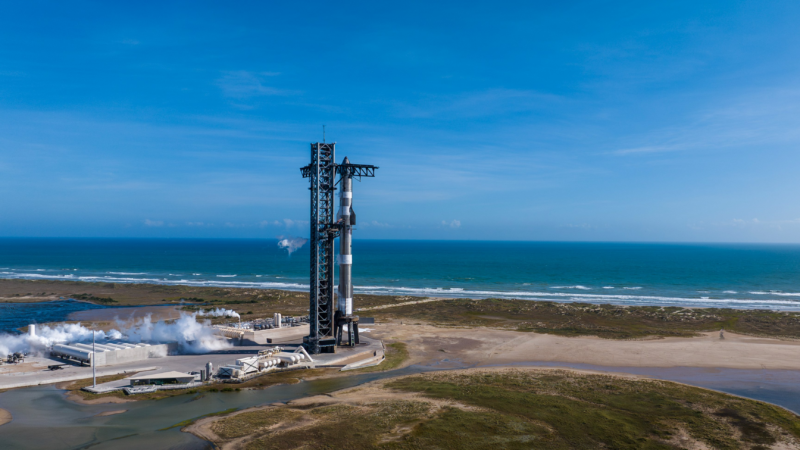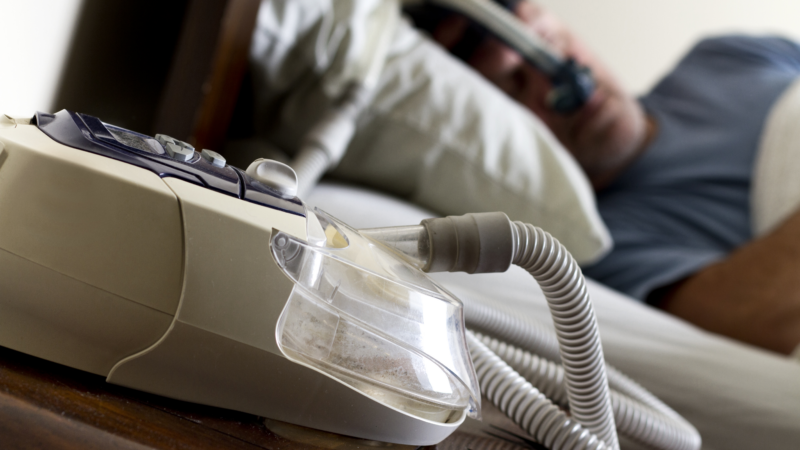Development of Elon Musk’s rocket to Mars will likely take off under Trump
Later today, Elon Musk’s company SpaceX is set to conduct another test of the largest rocket ever built.
If all goes as planned, sometime after 5 PM ET, the giant rocket, known as Starship, will lift off from its launch pad in Boca Chica, Texas. Starship is set to fly part way around the world before landing in the Southern Indian Ocean. Meanwhile, its super-heavy booster will attempt to return to the Texas launch site, where two robotic arms attached to the launch tower will try to grab it in mid-air.
It will be the sixth test launch of the giant rocket, and its second in as many months. The tests are the latest sign that SpaceX intends to rapidly accelerate Starship’s development. Next year, the company has said it would like to conduct as many as 25 launches.
Up until now, environmental requirements have held back SpaceX. Under the current environmental assessment, the Federal Aviation Administration limits SpaceX to five launches per year. And earlier this year, the FAA delayed licensing of a flight after the Environmental Protection Agency fined SpaceX for violating the Clean Water Act.
But with President Trump’s election, those sorts of regulatory hold-ups may become a thing of the past. At a rally last month in Tempe, Arizona, Trump boasted that American astronauts would soon be headed to Mars: “Get that spaceship going, Elon,” he said.
Trump wasn’t explicitly referencing the Starship program, but many expect SpaceX will be given a green light to speed testing of the rocket.
“I think the biggest difference in the next year is on the regulatory side,” says Lori Garver, a former Deputy Administrator of NASA under Barack Obama. “The FAA and the EPA will not be raising flags as they have been these last couple of years.”
Big rocket, big plans
SpaceX is already a major contractor for the U.S. government. It’s been paid billions to launch satellites, and for other services, like building a network of spy satellites. NASA has awarded around $4 billion explicitly for Starship’s development. The space agency would like to use as a lunar lander.
Starship is also at the heart of Elon Musk’s dreams of making humanity a multiplanetary species. He hopes the giant rocket will radically lower the cost of launching people and equipment into space. Musk has said he wants to see Starships traveling to Mars with the aim of creating a self-sustaining colony.
Starship’s development has cost SpaceX billions and “is probably absorbing cash rather than generating it at this point in time,” says Tim Farrar, president of TMF Associates, which analyzes the satellite industry.
Nevertheless, he says, Starship is central to SpaceX’s plans for the future.
“The promise of Starship is something that is pretty important for SpaceX in terms of convincing investors to keep pouring in money at ever-increasing valuations,” he says.
Fulfilling the promise of Starship comes with environmental costs. The Boca Chica launch site is located in the middle of state and federally protected wetlands. Biologists have documented that the sound and heat from launches damage the eggs of nesting birds. Documents from the EPA and an application to Texas regulators suggest that each launch also discharges tens of thousands of gallons of water contaminated with chemicals from the launch into the local environment.
SpaceX denies the water poses any serious harm, and it maintains that it is a good environmental steward: “The narrative that we operate free of, or in defiance of, environmental regulation is demonstrably false,” the company said in a statement in September. “SpaceX is committed to minimizing impact and enhancing the surrounding environment where possible.”
But environmental groups disagree. The FAA is currently being sued by the Center for Biological Diversity and local environmental groups for failing to conduct an adequate environmental impact statement before allowing SpaceX to launch Starship even once from the site.
Jared Margolis, a senior lawyer leading the suit says that if regulators do less in a new Trump administration, the courts could end up playing a larger role.
“We’re not afraid of confronting the Trump administration,” Margolis says. “We’re not afraid of making sure that environmental laws are being complied with. That’s what we do.”
Party City files for bankruptcy and plans to shutter nationwide
Party City was once unmatched in its vast selection of affordable celebration goods. But over the years, competition stacked up at Walmart, Target, Spirit Halloween, and especially Amazon.
Sudan’s biggest refugee camp was already struck with famine. Now it’s being shelled
The siege, blamed on the Rapid Support Forces, has sparked a new humanitarian catastrophe and marks an alarming turning point in the Darfur region, already overrun by violence.
FDA approves weight loss drug Zepbound to treat obstructive sleep apnea
The FDA said studies have shown that by aiding weight loss, Zepbound improves sleep apnea symptoms in some patients.
Netflix is dreaming of a glitch-free Christmas with 2 major NFL games set
It comes weeks after Netflix's attempt to broadcast live boxing between Jake Paul and Mike Tyson was rife with technical glitches.
Opinion: The Pope wants priests to lighten up
A reflection on the comedy stylings of Pope Francis, who is telling priests to lighten up and not be so dour.
The FDA restricts a psychoactive mushroom used in some edibles
The Food and Drug Administration has told food manufacturers the psychoactive mushroom Amanita muscaria isn't authorized for food, including edibles, because it doesn't meet safety standards.







